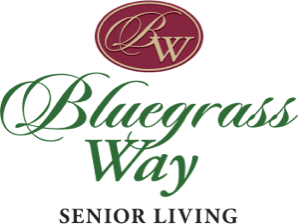When you notice signs of memory loss in a loved one, it’s only natural to question if they could benefit from care that’s not available in a home setting. Memory care communities have been specifically curated to provide this unique type of support, maintaining your loved one’s independence while taking care of their specific needs.
By taking note of signs that it’s time for memory care, you can make informed choices to support the safety, comfort, and quality of life of your loved one. If your family member is demonstrating increased forgetfulness, mood shifts, or facing challenges in self-care, it might be time to consider memory care.
Increasing Forgetfulness
It’s common for people to occasionally forget things, but when lapses in memory become a regular occurrence and appear to be worsening, this could be an indication that memory care is necessary.
Your loved one might begin to forget important meetings, the identities of their immediate family members, or how to carry out everyday activities. While it’s normal for memory to sometimes fail as we age, a recurring trend of forgetfulness can be alarming, particularly if it starts to interfere with daily routines.
Difficulty with Personal Care
If your loved one is continually finding it hard to upkeep personal cleanliness, dress suitably, or juggle their everyday tasks, it’s a sign they require more help.
You may spot that they’ve been donning the same attire for numerous days, overlooking oral hygiene, or missing meals due to forgetfulness. These are not just instances of disrupted routines, they can escalate to severe health issues like malnutrition, dehydration, and other serious health concerns.
Wandering or Getting Lost
Wandering is a notable hazard linked with memory deterioration. Your loved one might leave their home and experience confusion, finding it hard to trace their path back.
Even in environments they know well, the sudden sensation of being lost or mixed-up about their surroundings could occur. This not only presents notable security concerns, but it can be stressful and emotionally taxing for family caregivers to deal with.
Memory care communities have a prime focus on safety, including secure surroundings that grant residents the independence to roam freely without getting lost.
Changes in Mood & Behavior
It’s common for memory loss to trigger significant shifts in a person’s mood and behavior. Unpredictable outbursts, increased agitation, or uncharacteristic withdrawal can become all too common.
These changes can be hard to navigate at home, especially when they are frequent or inconsistent. If these behavioral changes are starting to affect relationships or daily activities, it might be the right time to explore professional help.
Our team of memory care professionals is specifically trained to cope with the psychological and emotional changes associated with dementia and Alzheimer’s disease. Through a dedicated, supportive environment, we aim to alleviate emotional distress and foster a sense of purpose and belonging.
Trouble with Medication Management
Properly managing medications is crucial for older adults’ health, especially if they’re juggling multiple prescriptions. Missing doses, taking the wrong meds, or accidentally overdosing can cause serious concerns. If your loved one is finding it hard to keep track of their medication schedule, memory care might be a helpful solution.
In a memory care community, the care team ensures the right medication is administered at the right time. At Bluegrass Way Senior Living, we have a dedicated team available round-the-clock to monitor medication and care for your loved one’s health.

Declining Physical Health
Memory impairment often correlates with deteriorating physical well-being. Observations of your loved one experiencing weight loss, adopting a bad posture, or showing heightened vulnerability might arise. They could encounter difficulties with movement, endure repeated stumbling, or reveal reduced enthusiasm for physical engagement. These indicators imply a necessity for a more organized care setup to preserve their health and forestall any additional deterioration.
Increased Isolation
Isolation is another sign that cognitive impairment might be affecting your loved one in a serious way. This could look like pulling away from social events, skipping family gatherings, losing interest in favorite hobbies, or avoiding social interactions altogether.
Isolation like this can make memory issues worse and even lead to depression, which can significantly impact their quality of life. Memory care communities can be a great solution, providing a safe, structured environment that encourages social connections and engagement.
Caregiver Burnout
No matter how deep your affection and dedication to your loved one is, being a caregiver can take a physical and emotional toll on anyone. If you find yourself swamped, fatigued, or emotionally depleted, it’s vital to acknowledge that you might need help.
Keep in mind that your health holds equal importance to your loved one’s, and that burnout can also compromise the quality of care you can offer.
Find Support at Bluegrass Way Senior Living
At Bluegrass Way Senior Living, we’re acutely aware of the hurdles that can arise when your family is affected by memory loss. Our memory care services are designed to meet your loved ones exactly where they’re at, extending compassionate care that honors their autonomy while ensuring they have access to care whenever necessary.
If you’re considering memory care for your loved one, we’re here to walk you through the process. Schedule your visit today, get an intimate glimpse of our community, and learn how we can help during this crucial time of change.



